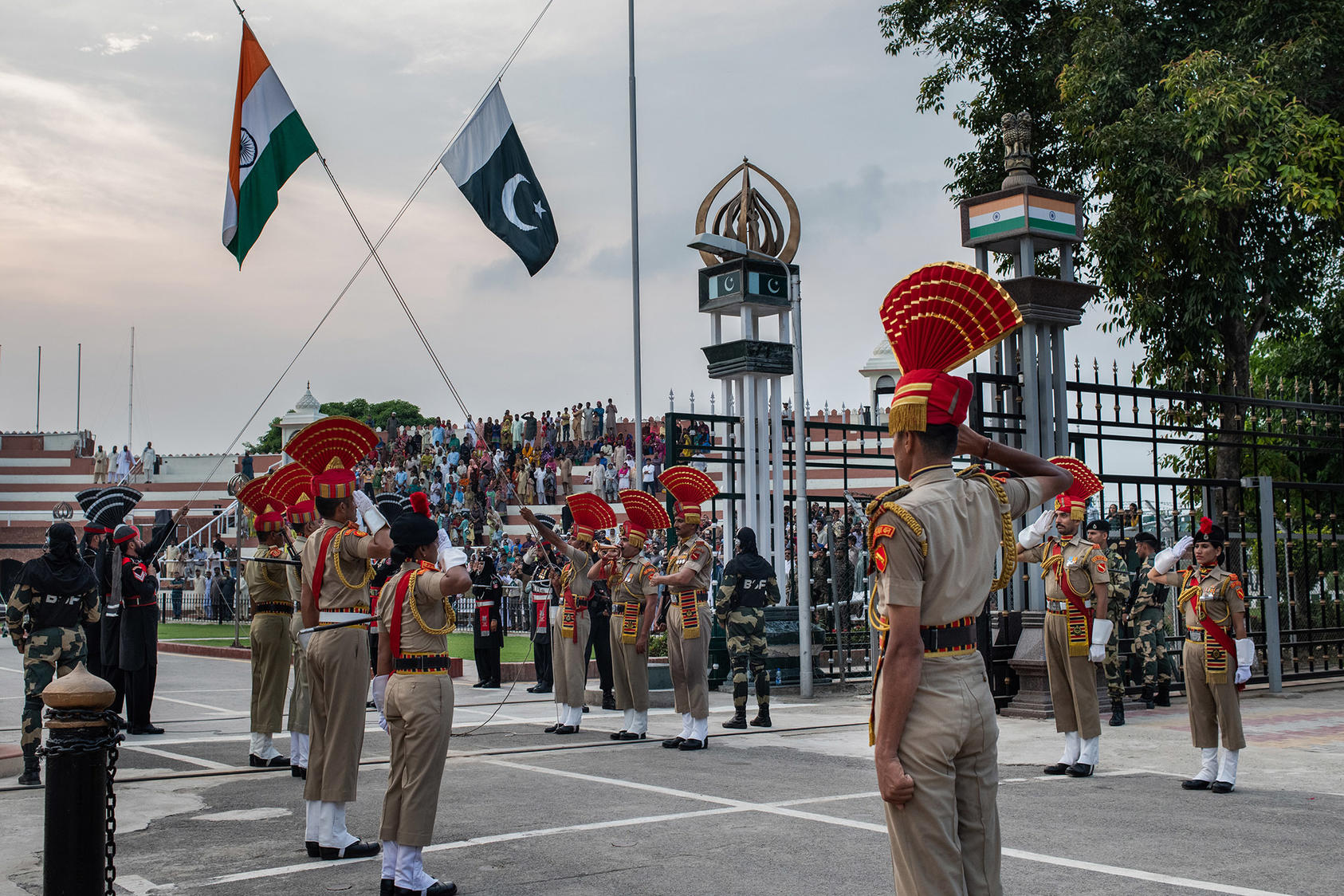
In February, India and Pakistan announced the resumption of a 2003 cease-fire along their fiercely disputed border — representing a first step toward easing tensions between the nuclear rivals. Soon after, leaders in both countries made forward-looking statements, sparking optimism for rapprochement. While bilateral progress has proven short-lived in the past, and longstanding political and security obstacles remain, could these developments open space to address the underlying drivers of conflict?
Members of India’s Border Security Force, foreground, at the daily flag-lowering ceremony with their Pakistani counterparts, in black uniforms, at the Wagah-Attari border crossing, Sept. 19, 2019. (Rebecca Conway/The New York Times)
Speakers
Madiha Afzal
Fellow, Foreign Policy, Brookings Institution
Tanvi Madan
Senior Fellow, Foreign Policy, Brookings Institution
Shuja Nawaz
Distinguished Fellow, South Asia, Atlantic Council
Ashley Tellis
Tata Chair for Strategic Affairs, Carnegie Endowment for International Peace
Tamanna Salikuddin, moderator
Director, South Asia, U.S. Institute of Peace
